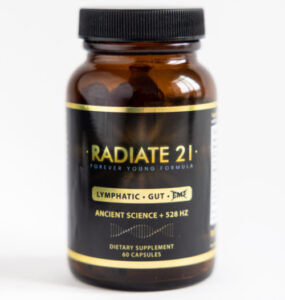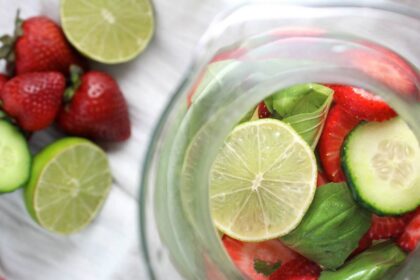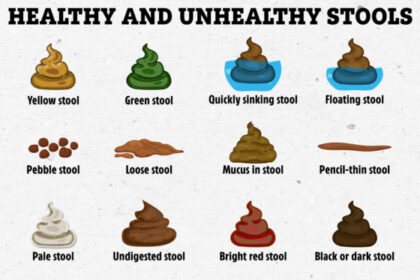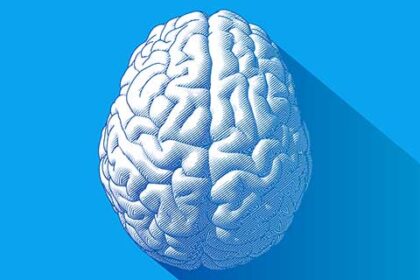Amid the conveniences and luxuries of the modern world, there has emerged a collection of health issues that our ancestors never had to contend with. One such ailment that has garnered increasing attention in recent years is “Leaky Gut Syndrome,” a condition that was virtually unheard of in the times of our grandparents.
As we delve into the intricate interplay between lifestyle, diet, and environmental factors, it becomes evident that the prevalence of Leaky Gut Syndrome is not a coincidence. It is a product of our evolving world, intricately woven into the fabric of our daily lives.
This article aims to unravel the mysteries behind Leaky Gut Syndrome and shed light on the stark differences between the health of our grandparents and our own. Through a retrospective lens, we will explore the factors that have contributed to the emergence of this syndrome, delving into the roles of dietary changes, stress, antibiotics, and the modern obsession with convenience.
But this exploration is not one merely focused on the problem; it is also a guide to finding solutions. We will dive deep into strategies and techniques to heal Leaky Gut Syndrome from the inside out, drawing from both traditional wisdom and cutting-edge scientific research.
Join us on this journey of understanding, as we bridge the gap between generations and explore how the past and the present have converged to shape the health challenges we face today. By recognizing the roots of Leaky Gut Syndrome and equipping ourselves with the tools to address it, we can strive for a healthier and more harmonious relationship with the world around us.
A Grandparent’s Gut: A Simpler, Healthier Era
Did your grandparents have chronic gut issues? Mine sure didn’t. A stark comparison to the growing epidemic of digestive issues, worsening with every generation.
So why didn’t your grandparents have gut issues? It’s really quite simple…
1) They got fiber from seasonal real food.
Back in the early 1900s, food came directly from farms and local markets. The absence of widespread food preservatives meant that their meals were fresh and unadulterated. Unlike today’s processed foods, their diets were abundant in dietary fiber—an essential component that provided nourishment for beneficial gut bacteria, effectively staving off the overgrowth of harmful bacteria.
Furthermore, dietary fiber aided in liver detoxification by absorbing toxin-laden bile, promoting a healthier gut environment. Even for infants, the value of breast milk was recognized, as it naturally contained probiotics and prebiotics, nurturing the delicate ecosystem of their developing gut microbiome.
2) They weren’t chronically constipated from liver/gallbladder issues.
Unlike our contemporary diets laden with foods that congest the liver-gallbladder axis, our grandparents’ eating habits supported smoother digestion. Bile acids, which are produced in the liver and released by the gallbladder after a meal, played a pivotal role in regulating their gut health.
By not overloading their system with foods that hindered this process, they experienced reduced bloating and constipation. This connection underscores the fact that many gut issues are intricately tied to liver and gallbladder health.
3) They didn’t take lots of supplements.
Supplement consumption was not a common practice for our grandparents, and as a result, their gut-liver axis thrived. Lesser-known is the fact that various supplements, including herbs, vitamin A, copper, and iron, can burden the liver with additional work, potentially compromising its functionality and subsequently impacting gut health.
4) They didn’t have a liver injury from Rx meds.
Unlike today’s inclination towards rapid pharmaceutical solutions, our grandparents approached sickness with a more patient and natural perspective. Opting for nourishing soups, broths, and ample rest, they trusted the body’s inherent healing mechanisms. This approach minimized the strain on their liver and contributed to their overall gut well-being.
5) They didn’t eat the rainbow and obsess over wellness.
The modern wellness movement has ushered in a plethora of dietary trends, encouraging the consumption of various foods and supplements in excess. Unlike our grandparents who followed simpler diets, our generation’s obsession with overloading on plant toxins and fat-soluble vitamins has inadvertently led to sluggish livers and compromised gut health. The relentless marketing of wellness culture has influenced dietary behaviors in ways counterproductive to our overall health.
6) They cooked food at home, using traditional preparation methods from scratch.
Convenience-oriented processed foods were not an option for our grandparents. Home-cooked meals prepared from scratch were the norm, ensuring that their diets were free from additives and hidden preservatives. These traditional cooking practices inadvertently contributed to their enhanced gut health.
7) They didn’t eat GMOs, food additives, synthetic herbicides, and thickeners.
In the early 1900s, food was not subjected to the barrage of synthetic chemicals that characterizes much of today’s produce. The absence of genetically modified organisms, synthetic herbicides, and questionable additives meant that their diet was untainted by substances that disrupt gut health and overall well-being.
8) They got dirty outside.
The outdoors played a central role in our grandparents’ lives, and their interaction with nature had profound effects on their gut health. Unlike our sanitized modern environments, they embraced a more hands-on, immersive approach to life. This, coupled with outdoor activities like biking, playing on swing sets, and simply spending time in nature, bolstered their immune systems and contributed to a healthier gut ecosystem.
As we reflect upon the habits and circumstances of the past, it becomes evident that our grandparents’ lifestyles were inherently conducive to maintaining a healthy gut. The absence of today’s modern challenges and the embrace of simpler, natural practices allowed for a harmonious balance that fostered optimal well-being. In the next segment, we will delve deeper into how we can bridge the gap between generations and apply these insights to heal Leaky Gut Syndrome from the inside out.
Conclusion: Nurturing a Timeless Connection to Gut Health
The journey through time has revealed a compelling narrative of how our grandparents’ generation managed to evade the complexities of Leaky Gut Syndrome that we grapple with today. The stark contrasts between their lives and our modern existence underscore the significance of adopting a more holistic approach to gut health—one that draws inspiration from the past while embracing the advancements of the present.
As we stand at the crossroads of tradition and innovation, we have the opportunity to reclaim the wisdom that once guided our ancestors. The lessons embedded in their dietary habits, relationship with nature, and trust in the body’s innate healing mechanisms offer invaluable insights into the restoration of our gut health. By integrating their time-tested practices with cutting-edge knowledge, we can embark on a journey to heal Leaky Gut Syndrome from the inside out.
Healing Your Leaky Gut Can Be Easy With Radiate 21! With Ingredients Taken Straight From Nature That Have Proven To Heal From The Inside Out, Radiate 21 Boosts Your Immune System, Improves Sleep, And Increases Collagen Absorption!
Click Here To Learn More!
It’s a journey that begins with a conscious shift towards whole, seasonal foods that nurture our gut microbiome. A return to simpler diets and mindful consumption allows us to provide the essential fuel for our beneficial bacteria to flourish, crowding out harmful pathogens that disrupt gut harmony.
We can take cues from our grandparents’ approach to wellness by focusing on the liver-gallbladder axis, recognizing its profound influence on gut health. Mindful choices about the foods we consume, free from unnecessary supplements and processed substances, alleviate the burden on our liver, enabling it to effectively support our gut environment.
Beyond the plate, we can rekindle our relationship with nature, embracing outdoor activities that bolster our immune systems and encourage a diverse gut microbiome. By stepping outside and allowing ourselves to get a little dirty, we tap into the symbiotic connection that our grandparents intuitively understood.
In a world inundated with modern complexities, our grandparents’ lives resonate as a reminder of a simpler, more balanced approach to health. This isn’t about returning to a bygone era, but rather synthesizing the best of both worlds—a fusion of traditional wisdom and contemporary knowledge.
As we navigate the complexities of our modern lives, let us heed the lessons of the past and embark on a journey towards healing, ensuring that the legacy of optimal gut health transcends generations to come.






